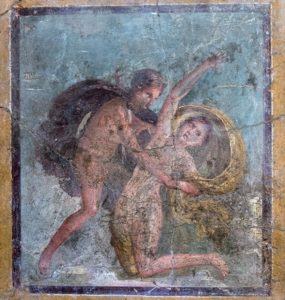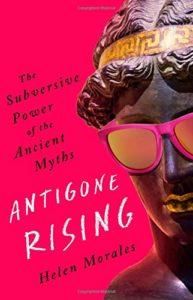Gender
Most of the texts, art and architecture that survive from the ancient world were created by men. And, as several of the posts below discuss, they have sometimes been leveraged by men in the 21st century to support misogynistic, homophobic and other discriminatory viewpoints. However, the Classical world is also full of material that can help us unsettle assumptions about gender and sexuality, call out gender inequalities, explore the causes of gender-based violence, promote trans rights, champion inclusion, and celebrate diversity. To find out more, you can browse some of the ‘Applied Classics’ projects and reflections below…
The Hippolytus Initiative
In 2022, a group of two students, Emily Speed and Duncan Tarboton, created the Hippolytus Initiative. The project aims to start conversations using ancient source material and texts to confront uncomfortable truths about society’s relationship with sex and gender, with a particular focus on using Classics to combat the radicalisation of young people by ‘incel’… Read More
Misogyny, Myth and Modern Classics
Lily Talbot is a third-year student in the School of Classics, taking our Classics for the Modern World module. In this blog, she discusses some of the ways in which ancient myths and literature have been harnessed by misogynist groups and individuals, and what ‘Applied Classics’ can do in response. Apollo and Daphne, fresco from… Read More
Antigone Rising
A tongue fat from swelling. A fine flame coursing down through your limbs. Ringing in your ears and a fuzzy darkness blinding your eyes. As an undergraduate Classics student who has studied Latin for more than half of my life, I instantly recognise these words as expressions and symptoms of ancient love. Read More


